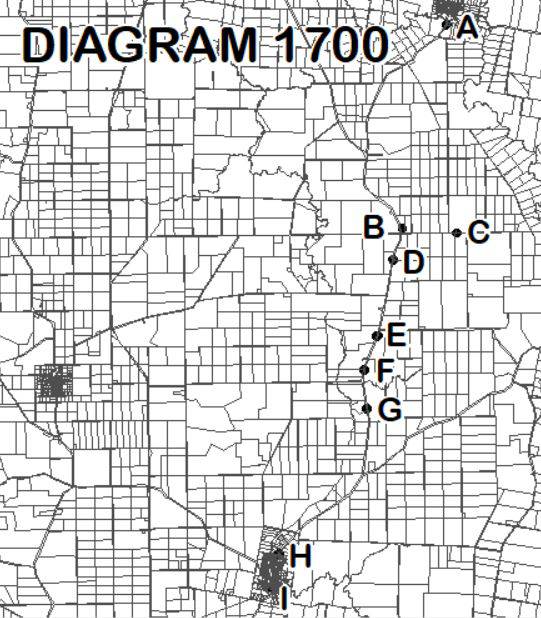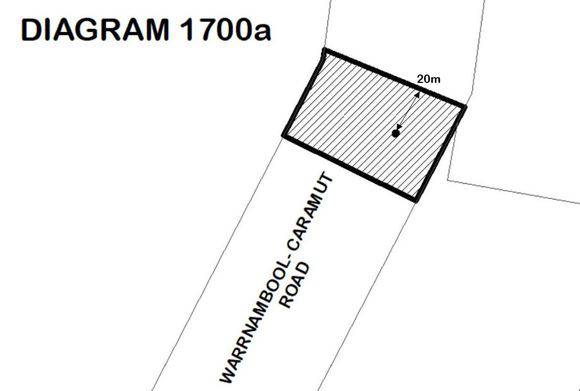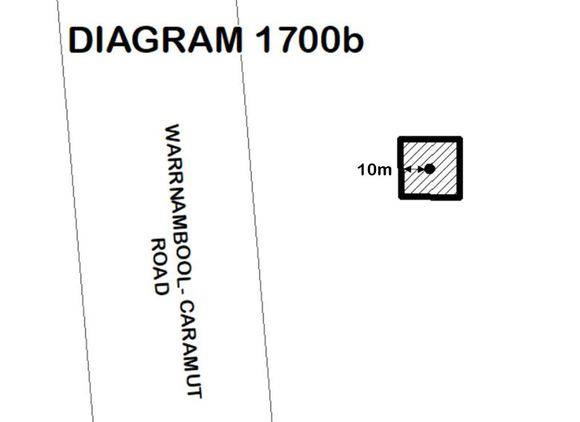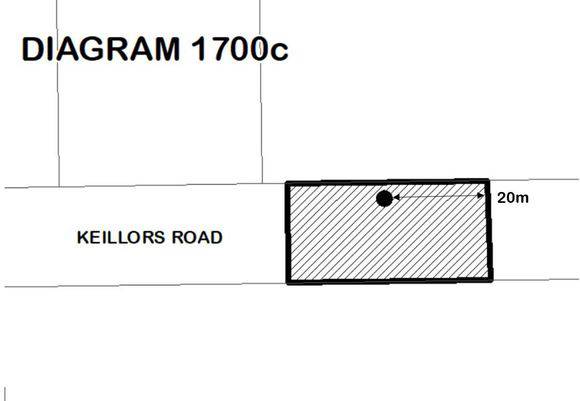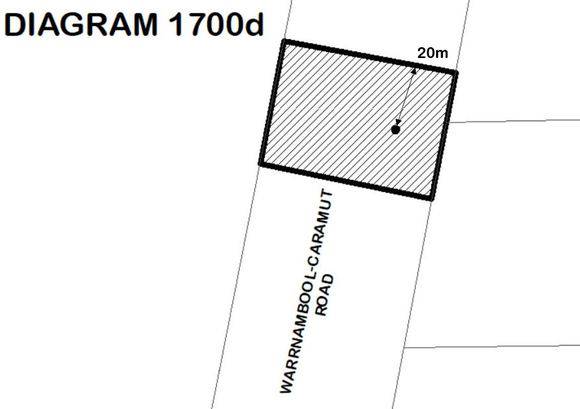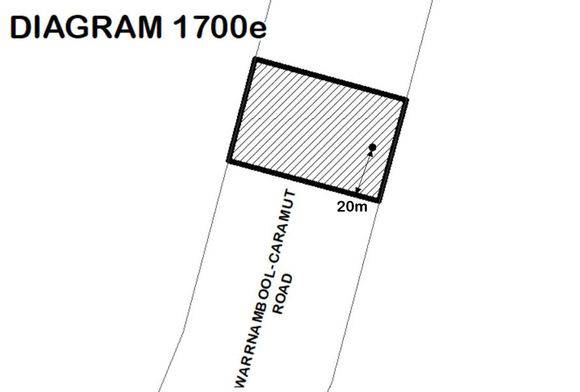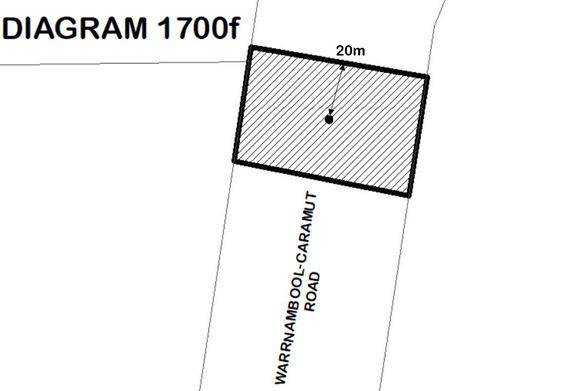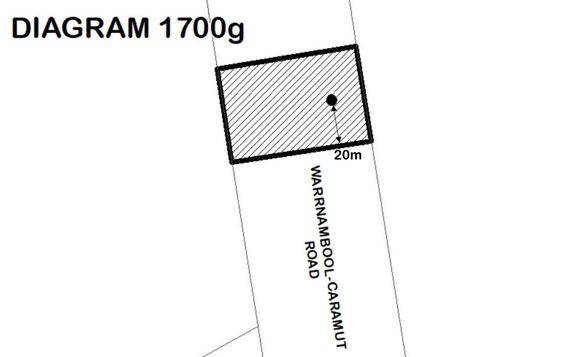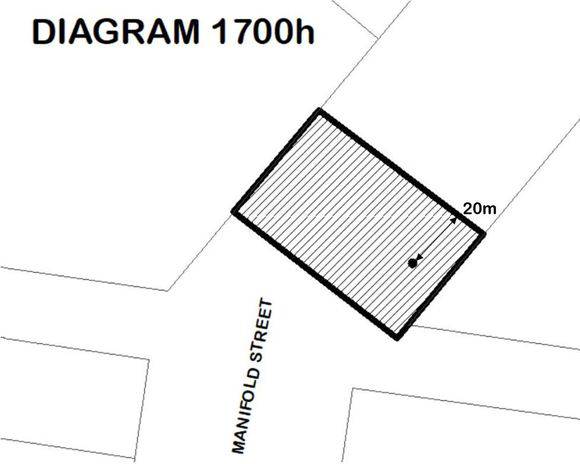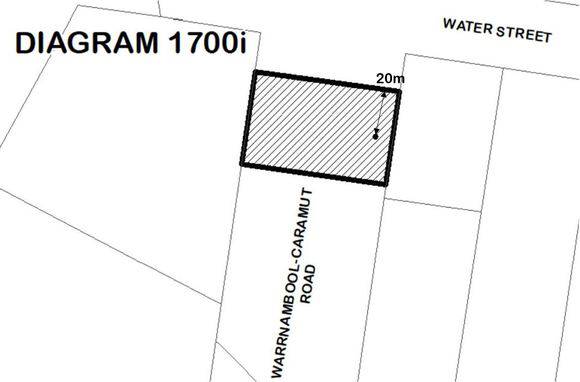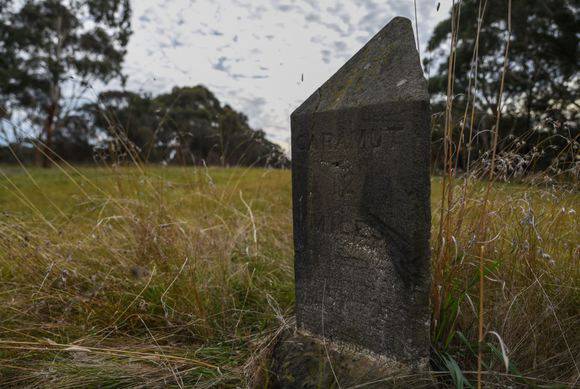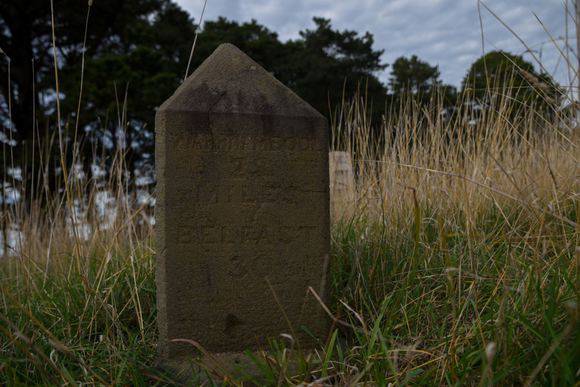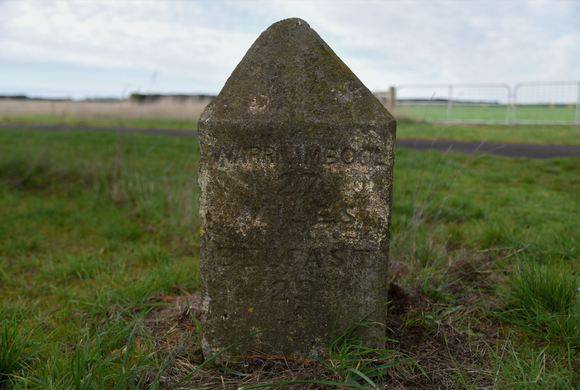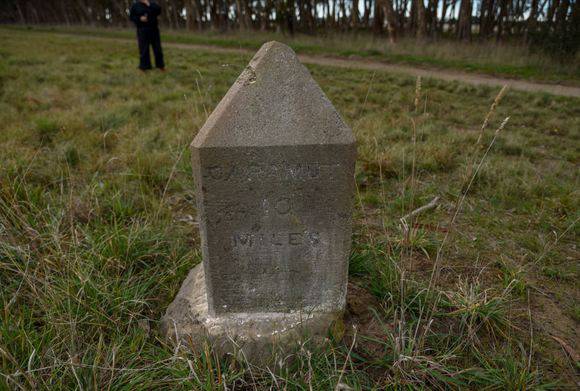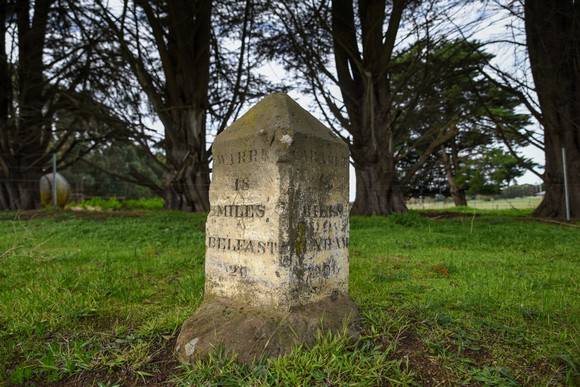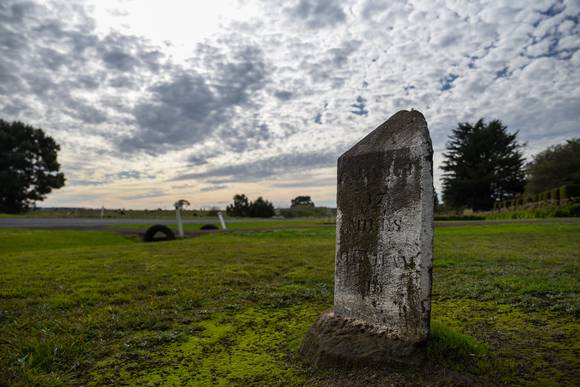| Back to search results » | Back to search page » |
|
STONE MILEPOSTS - WARNNAMBOOL-CARAMUT ROAD
Statement of Significance
WHAT IS SIGNIFICANT?
HOW IS IT SIGNIFICANT?
- Criterion A Importance to the course, or pattern, of Victoria?s
cultural history. - Criterion B Possession of uncommon, rare or endangered aspects of
Victoria?s cultural history. - Criterion D Importance in demonstrating the principal
characteristics of a class of cultural places and objects.
WHY IS IT SIGNIFICANT?
The Stone Mileposts - Warrnambool-Caramut Road are historically
significant for their association with the development and use of the
road transport system in Victoria in the mid-nineteenth century. Local
shire ordistrict roads boards erected mileposts along popular roads to
assist travelers with wayfinding and navigation. They were a necessity
for coach travel between and beyond railway stations into remoter
areas of Victoria. As a collection of mileposts, they allow the use of
the road network in mid-nineteenth century Victoria to be better
understood than most other places or objects with the same
association. The fine design and solid construction of the
Warrnambool-Caramut Road mileposts represent the economic prosperity
of Western districts pastoralists in the era. They are an evocative
reminder of the experience of road travel in rural Victoria in the
mid-nineteenth century. (Criterion A) The Stone Mileposts- Warrnambool-Caramut Road are historically
significant for their association with the preparations in Victoria
for a potential land invasion during World War II. After the fall of
Pearl Harbour in 1942, the mileposts were buried to limit navigation
and wayfinding information available to a potential invading force.
Some mileposts were subsequently re-erected following the war.
(Criterion A) The Stone Mileposts - Warrnambool-Caramut Road are significant as a
rare surviving example of a group of stone mileposts from the
mid-nineteenth century. Stone mileposts were once common throughout
western Victoria but were gradually replaced by cast iron and cast
concrete alternatives, or otherwise lost or damaged. Although there
are other individual examples of stone mileposts, there are few
examples of roads that retain multiple mileposts. As a collection of
nine stone mileposts, the Warrnambool-Caramut Road mileposts are
extremely rare within Victoria (Criterion B). The Stone Mileposts - Warrnambool-Caramut Road are a notable example
of roadside mileposts. Demonstrating construction techniques and
materials of the 1860s-70s, they encapsulate a key evolutionary phase
in the development of the class. They are fine, being substantial,
highly visible and demonstrating the skill of the stonemason's craft
in their finely dressed stone and precise lettering. The location of
the mileposts allows the role of the class to be easily understood.
(Criterion D)
The nine nineteenth-century basalt mileposts located along the
Warrnambool-Caramut Road, on KeillorsRoad and within the property
Wooriwest at 4014 Warrnambool-Caramut Road between the townships of
Caramut and Woolsthorpe.
The Stone Mileposts- Warrnambool-Caramut Road are of historical
significance to the State of Victoria.They satisfy the following
criteria for inclusion in the Victorian Heritage Register.
Group
Transport - Road
Category
Road Milepost/Milestone


